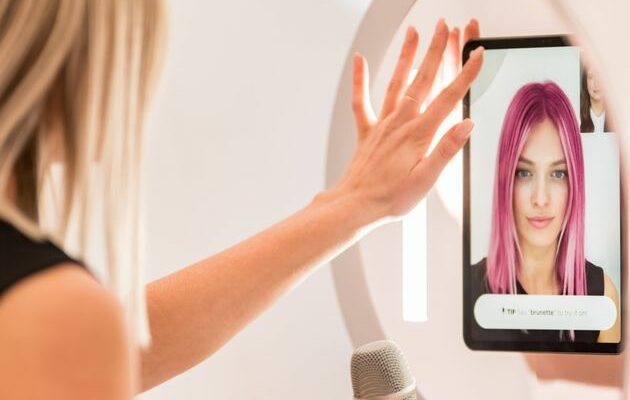Managing Director of L’Oréal, Nicolas Hieronimus opened CES 2024 in January. The opportunity for the manager to present the group’s new beauty assistant based on generative artificial intelligence (more than 10 integrated LLMs): BeautyGenius.
This opening keynote by a French cosmetics player was a first, underlines Béatrice Dautzenberg, Global Director of Beauty Tech Services. However, L’Oréal already has more than 10 participations at CES.
One billion euros invested in tech per year
In 2024, the multinational has also won 7 awards, ranking third in number of awards, trailing only Samsung and LG. “It’s not magic. These are investments,” points out Béatrice Dautzenberg during the Hub Retail & E-commerce forum.
In addition to its investments in R&D in chemistry, L’Oréal devotes significant resources to technology. The company claims more than a billion euros of investments per year in this sector. Tech today means 6,300 employees at L’Oréal.
In 2018, the group made its first acquisition of a technology company, the Canadian startup ModiFace specializing in augmented reality applied to makeup. This operation marked the birth of Beauty Tech. L’Oréal has since continued to plow its way in this area.
Tech applied to cosmetics consists of software products and hardware, but also a lot of purchasing assistance. “More than 70% of buyers tell us that they are lost when they have to choose their beauty products,” says Béatrice Dautzenberg.
L’Oréal comes to Microsoft Teams
L’Oréal has developed multiple services. In charge of L’Oréal’s Beauty Tech Services for more than a year, the manager has since worked on restructuring the service portfolio around four pillars: guiding, diagnosing, predicting and coaching.
Among its products, L’Oréal has notably developed cosmetics testing in augmented reality, Virtual Try On. “Virtual fitting room”, it arrives at the end of the consumer’s purchasing journey. The service is deployed on brand sites and with distributors.
“We are always trying to innovate and find new ways to reach consumers.” In this context and after Zoom, L’Oréal has designed a dedicated Maybelline module for Microsoft Teams: Teams Virtual Make-Up.
The service is intended for men and women. “We are amazed by the usage figures,” says the director. “Microsoft has 300 million users. As a brand, we are interested in this way of communicating with users.”
The office is also described as a new “touchpoint” by L’Oréal whose ambition is “to integrate into consumer journeys.” To do this, the cosmetics giant is highlighting its strategy of developing partnerships with platforms.
Generative AI yes, but without giving up human models
“Beauty tech also means opening up new territories. We are moving from selling a moisturizer to selling beautiful skin with coaching and support. It’s no longer just the sale of cosmetics,” illustrates Béatrice Dautzenberg.
To this end, L’Oréal insists on the axis of personalization. This approach is also at the heart of its adoption of generative AI through its BeautyGenius assistant, which will be launched in April in the United States and in Europe in September.
The group, however, claims an ethical approach, particularly with regard to data protection. In terms of limits, the company declares that it prohibits the use of virtual models. “We decided to continue working with humans”, despite the significant amount of money spent on photo shoots.
“What we learned with generative AI is that you need excellent data sets, a very rigorous framework and above all you need humans.” The human being is presented as the originator of “the most relevant” tech product improvements, concludes the director of Beauty Tech Services.
